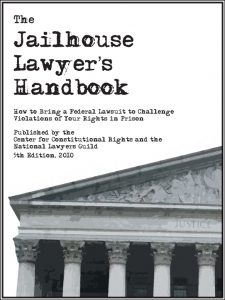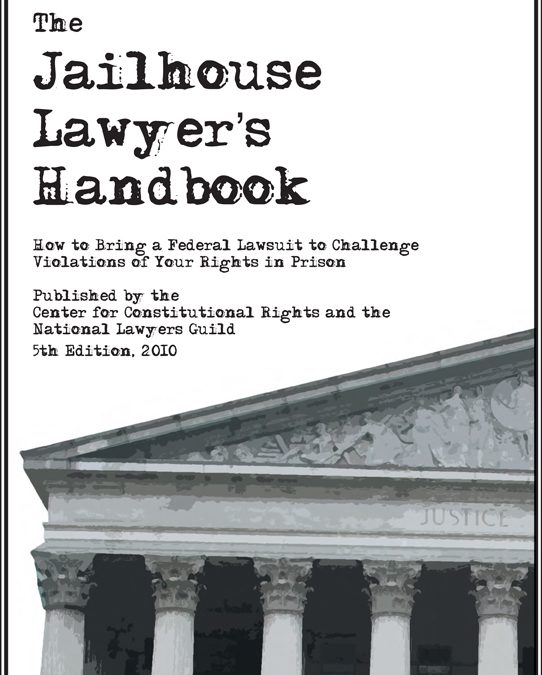A Local Lawyer is Sent to Prison
A Local Lawyer is Sent to Prison
 A local lawyer who I know — I’ll call him Rick — was recently sentenced by a federal court judge to 60 days in prison for taking money that belonged to one of his elderly clients. The Lawyer is in his mid-sixties. I want to share with you a letter that I sent to him after the judge handed down the sentence. I think you will agree that the advice that I shared with him would be of benefit to anyone. The sending of the letter was what I considered to be a spiritual work of mercy. Here’s what I wrote in the letter:
A local lawyer who I know — I’ll call him Rick — was recently sentenced by a federal court judge to 60 days in prison for taking money that belonged to one of his elderly clients. The Lawyer is in his mid-sixties. I want to share with you a letter that I sent to him after the judge handed down the sentence. I think you will agree that the advice that I shared with him would be of benefit to anyone. The sending of the letter was what I considered to be a spiritual work of mercy. Here’s what I wrote in the letter:
Dear Rick, I’ve gone back and forth in my mind about writing this letter to you. The logical side of my brain has been screaming at me to mind my own business and refrain from offering advice to a person who has not asked for my advice or paid for it. As you know, unsolicited advice is seldom listened to or appreciated, and most people who are on the receiving end of unsolicited advice become resentful and angry at the person who offered the advice.
Despite what the logical side of my brain is telling me, the spiritual side of me keeps insisting that I have an obligation to share my thoughts with you. The obligation comes from the relationship that you and I have as brothers in Christ. You may not remember this, but more than 20 years ago, I ran into you after I had lunch with a friend at the Lariat Steakhouse. You told me that you were there for a monthly meeting with a group of Christian men who periodically met there for lunch. You invited me to join the group, but at that time I felt that I was too busy to take on another commitment.
Even though I’ve rarely seen you since running into you on that day, I’ve never forgotten your invitation for me to join your group of Christian men. That’s why I feel that I have an obligation to reach out to you with some suggestions that may help you successfully deal with the struggles that you are going through. I have three things that I would like for you to consider doing while you are in prison, and after you are released from prison.
1. Advice from a Concentration Camp Survivor. You may have heard of Viktor Frankl, the author of the best-selling book Man’s Search for Meaning. During the 1940s, Frankl spent three years in two different Nazi death camps. While he lived to write about his experiences in the death camps, Frankl’s wife and almost every other member of his family were killed by the Nazis (his sister was able to escape to Australia).
Frankl wrote that the way the Nazis dealt with their prisoners was to first destroy their wills to live, and then destroy their bodies. In order to maintain hope — and his will to live — Frankl came to realize that he needed to do three things every day to guard against the onslaught of mental and physical abuse that the Nazis leveled against him.
First, he determined that he needed to pick out something every day that he was thankful for. One habit that he developed was to look out a certain window every morning at a tree that was growing on a hill in the distance. Each day when he looked at the tree, he reminded himself of how thankful he was for the beautiful tree. The process of observing the tree every day allowed him to continually develop a further appreciation for the four seasons — spring, summer, fall, and winter. The second thing that Frankl did each day was find something to laugh about. The third thing that he did each day was find someone who he could help.
Frankl realized that while the Nazis were in control of his outside circumstances, he was in control of what went on within his own mind. He was also in control of how he responded to what the Nazis did to him. True happiness begins with how we respond to difficulties and hardships. We all have choices that we have to make. Are we going to respond to a problem with anger and self-pity or are we going to respond with gratitude and appreciation for what we have? Are we going to focus on our own pain and suffering or are we going to focus on helping someone who is experiencing a hardship or difficulty? Can we follow Frankl’s example and learn how to step away from our own dire situation long enough to have some fun and laugh about something that is going on around us?
2. The Morning Pages. The second suggestion that I have for you is to engage in a morning exercise that I learned from the book titled The Artist’s Way, written by Julia Cameron. In her book, Cameron recommends that every morning, after you wake up, you should sit down at a desk or a table and write what she calls “the morning pages,” which consist of three pages of longhand writing. What you write on the pages can be anything that has been on your mind or that comes to your mind.
According to Cameron, there is no wrong way to write the morning pages. You can write whatever you want to. Nothing is too petty, too stupid, or too bizarre to be included. The morning pages must be done every morning. No skipping or scrimping. Doing this exercise first thing every morning will help you start off each day by helping you to get to the other side of fear, worry, despair, negativity, anger, and self-pity.
The temptation that you gave into when you took your client’s money does not define who you are today and who you will be in the future. I’m sure that you have already “beaten yourself up” too much and will continue to do so. The morning pages will help you strip off the guilt, shame, and humiliation that resulted from your actions.
3. The Doorway to Holiness. The third suggestion that I have for you is to add two specific prayers to your daily prayer regimen, and to also add a third prayer when you think about and are troubled by the humiliation of losing your law license and of having to face your family members, friends, and colleagues.
In the early years of my law practice, I did a fair amount of criminal defense work. I found that most of the men who went to prison ended up coming out of prison more arrogant and defiant than they were before they went in. Defiance is a direct result of pride. A person who lacks humility is always defiant. Christ told us, “Take My yoke upon you and learn from me, for I am meek and humble of heart, and you will find rest for your souls.” Matthew 11:29.
I’ve enclosed two articles that I previously wrote that discuss the virtue of humility and the importance of praying for humility. The first article — A First & Last Prayer— describes how the virtue of humility saved one of the two criminals who was crucified with Christ. The second article — The Doorway to Holiness and Perfection— describes how humility is the doorway to holiness and includes three prayers: the Litany of Humility, Freedom from Human Respect, and Recovery from Humiliation.
I personally pray from memory the Litany of Humility and Freedom from Human Respect every day. Whenever I’ve been humiliated by another person or by something I’ve said or done, I pray the Recovery from Humiliation prayer. It’s an extremely powerful prayer that helps a person reframe the way they are thinking and it opens the person up to the grace of God to overcome the humiliation.
I sincerely hope that you will give serious consideration to what I’ve suggested in this letter. There are occasions when I feel as though God wants me to pass a message on to a fellow Christian. This is one of those occasions.
If you need anything before, during, or after the time that you are in prison, feel free to reach out to me and I’ll do my best to assist you. I have marked my calendar to pray for you during the time that you are incarcerated.
Sincerely, your brother in Christ,
Harry Williams.





4 Comments
What a fabulous article. Thank you for sharing.
Good Morning, Georgette and Harry!
What an uplifting letter! You were the prisoner’s Guardian Angel, speaking
to him in Jesus’ Name! May both of you and your family feel the Presence of our
Jesus within your hearts – always! With loving prayers – Sister Roberta, csj
Another inspirational article for all of us. What a powerful instrument you are in God’s Hands!! Thank you for your sharing His gifts with us.
I was particularly moved today with this. It first reminded me of something I heard long ago on advise “Do not give advice for the wise don’t need it and fools don’t heed it.” How true. But everyone in between (like me) … take it in to help us make better decisions in life. I can imagine it is difficult to write – ‘been there, done that’ . . . Jesus please help me with what is to be read in this (and sometimes feeling it isn’t the contents, but the choice of just doing it/reaching out for someone).
I was struck with “Litany of Humility” – how this should be the first page that pops up when we are off checking our social media channels. I have, many times, gotten wrapped up in facebook, but I think it is most satisfying when I am just being helpful and honest, and have no expectations (not even a ‘like’ acknowledgement).
One of the statements for difficult moments is do what I need to, do it [everything ] with love and respect. (Another rule that social media might use)
I am intrigued with the morning pages. That is something I want to do and work at for a while.